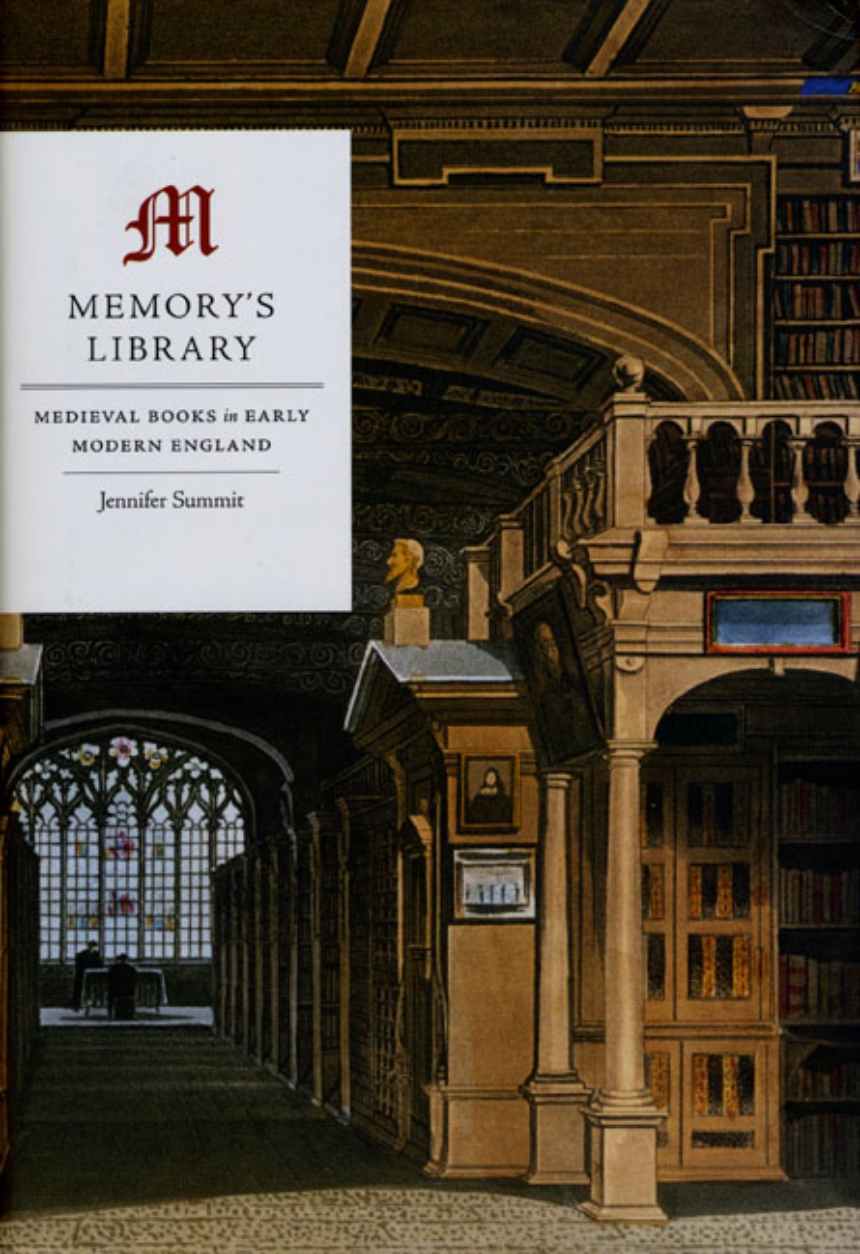Memory’s Library
Medieval Books in Early Modern England
In Jennifer Summit’s account, libraries are more than inert storehouses of written tradition; they are volatile spaces that actively shape the meanings and uses of books, reading, and the past. Considering the two-hundred-year period between 1431, which saw the foundation of Duke Humfrey’s famous library, and 1631, when the great antiquarian Sir Robert Cotton died, Memory’s Library revises the history of the modern library by focusing on its origins in medieval and early modern England.
Summit argues that the medieval sources that survive in English collections are the product of a Reformation and post-Reformation struggle to redefine the past by redefining the cultural place, function, and identity of libraries. By establishing the intellectual dynamism of English libraries during this crucial period of their development, Memory’s Library demonstrates how much current discussions about the future of libraries can gain by reexamining their past.
354 pages | 8 halftones | 6 x 9 | © 2008
History: British and Irish History
Library Science and Publishing: Library Science
Literature and Literary Criticism: British and Irish Literature
Reviews
Table of Contents
Acknowledgements
Introduction: Libraries of Memory
1. Lydgate’s Libraries:
Duke Humfrey, Bury St. Edmunds, and The Fall of Princes
2. The Lost Libraries of English Humanism:
More, Starkey, Elyot
3. Reading Reformation:
The Libraries of Matthew Parker and Edmund Spenser
4. A Library of Evidence:
Robert Cotton’s Medieval Manuscripts and the Generation of Seventeenth-Century Prose
5. "Cogitation against Libraries":
Bacon, the Bodleian, and the Weight of the Medieval Past
Coda: Memories of Libraries
Notes
Index
